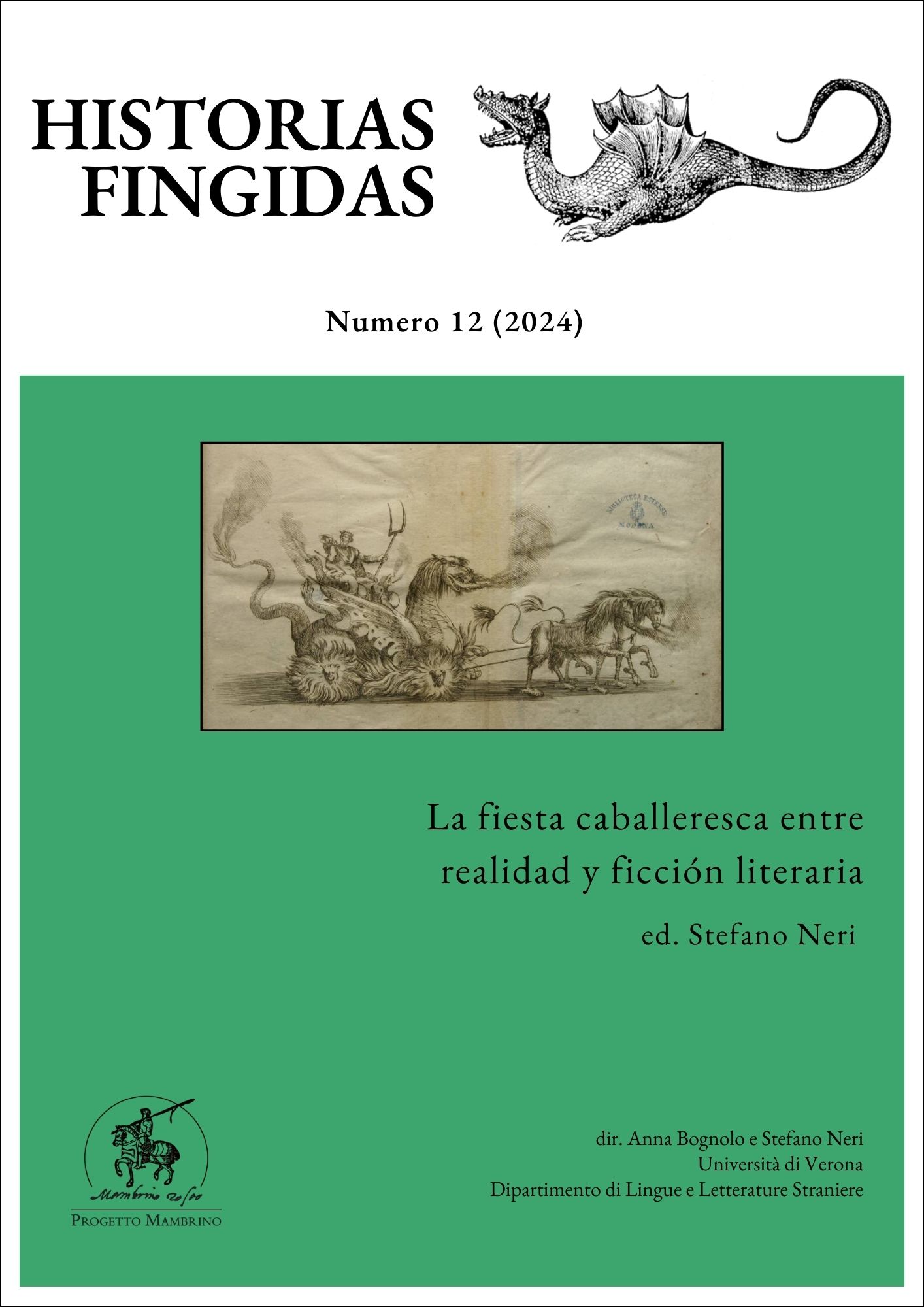The feast of Orlando: private entertainment and public rites in the Mambriano by Cieco da Ferrara
DOI:
https://doi.org/10.13136/2284-2667/1533Keywords:
Mambriano, Francesco Cieco da Ferrara, feast, Inamoramento de Orlando, BoiardoAbstract
Despite their fantastic content, chivalric poems of the 15th and 16th centuries can become a portrait or a speculum of the actual reality. This happens in a particularly significant way in the Mambriano by Francesco Cieco da Ferrara, a poem composed between Boiardo’s and Ariosto’s masterpiece, and closely linked to the Gonzaga family. Here, resorting also to a close interplay with some episodes of Inamoramento de Orlando, Francesco Cieco uses the representation of parties and feasts to propose contents quite unusual for chivalric literature and to sketch the portrait of an ideal court, based on harmony, pacification and the search for the common good.
Downloads
Published
Versions
- 2024-12-29 (2)
- 2024-12-28 (1)
Issue
Section
License
Copyright (c) 2024 Anna Carocci

This work is licensed under a Creative Commons Attribution-NonCommercial 4.0 International License.
Authors must attend to the following conditions:- Authors will mantain the copyright of their work and leave to the journal first publishing rights, simultaneously licensed by a Creative Common License - Attribution - No Commercial Use that permits other researchers to share the work indicating the intellectual property of the author and the first publishing in this journal not for commercial use.
- Authors can adhere to other license agreements not exclusive to the distribution of the published version of their work (for example: include it in an institutional archive or publish it in a monografic book), with the agreement of indicating that the first publishing belongs to this journal.
- Authors can disseminate their work (for example in institutional repositories or their personal website) before and during the submission procedure, as it can lead to advantageous exchanges and citations of the work (see also, The Effect of Open Access).

